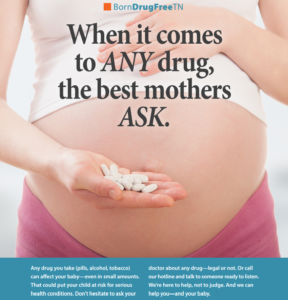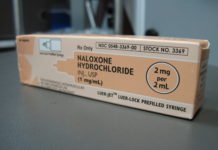keep their infants around while receiving addiction treatment.
McCarter said that although the fetal assault law is no longer in effect, legislators in Tennessee still need to improve the ways they handle addiction. “Unfortunately, somehow things haven’t changed a lot,” she said. “We still have judges that take children away because the mother is under the influence when the child is born. It has created some relief for some people but not for others.”
State representatives didn’t dedicate enough money to drug addiction treatment, and data from the Department of Health shows that only 10 percent of women who need treatment actually receive it.
“It would be extremely important for legislators to get some sort of education in terms they can understand,” McCarter said. “This is a disease, not a moral issue or a moral choice. People who never experienced losing that kind of control don’t understand. Family members may ask, ‘why don’t you just stop?’ – Because they can’t.”
Maternal detox
According to McCarter, there are also many substance abuse treatment providers who could learn more about addiction because they remain under the wrongful impression that it is not safe for pregnant women to go through detox, which is why most treatment facilities in Tennessee don’t offer the service.
“Lawmakers who have no knowledge of addiction or limited knowledge of addiction didn’t understand that they’re not helping the situation,” she said. “When pregnant women get arrested, they end up in jail with no detox, which puts the child and mother at risk. They aren’t getting help, they’re getting punished for having the disease of addiction, and I’ve seen several pregnant women who were able to detox safely and give birth to children who weren’t addicted.”

Bragg explained that the national standard of medical care for pregnant women who use drugs was established more than 50 years ago and that historically detoxing pregnant women has not been considered to be the best medical practice.
But Dr. Craig Towers, a professor at the University of Tennessee, recently conducted research that showed that maternal opiate detoxification is safe and improves the general outcomes of a high-risk pregnancy. Tennessee’s health department will be using these new scientific findings to set up updated guidelines for the treatment of addicted pregnant women, which will focus especially on detox.
“For years, the standard of care was to put women on methadone or buprenorphine throughout their pregnancies, but Dr. Towers showed that these women don’t need tapering,” Dr. Loyd said. “On a national scale, Tennessee is going to take a beating. We’ll be going against what the standard of care has been, but the standard of care is based very, very loosely in a small number of cases.”
















